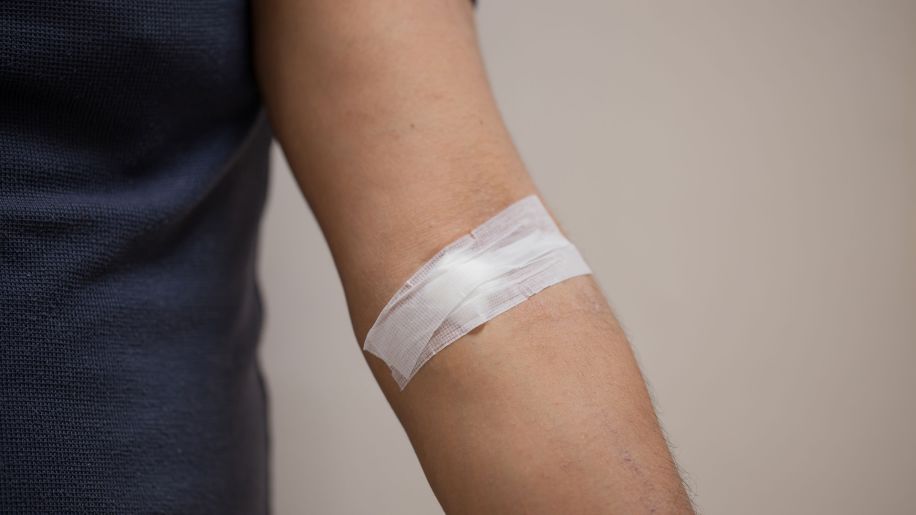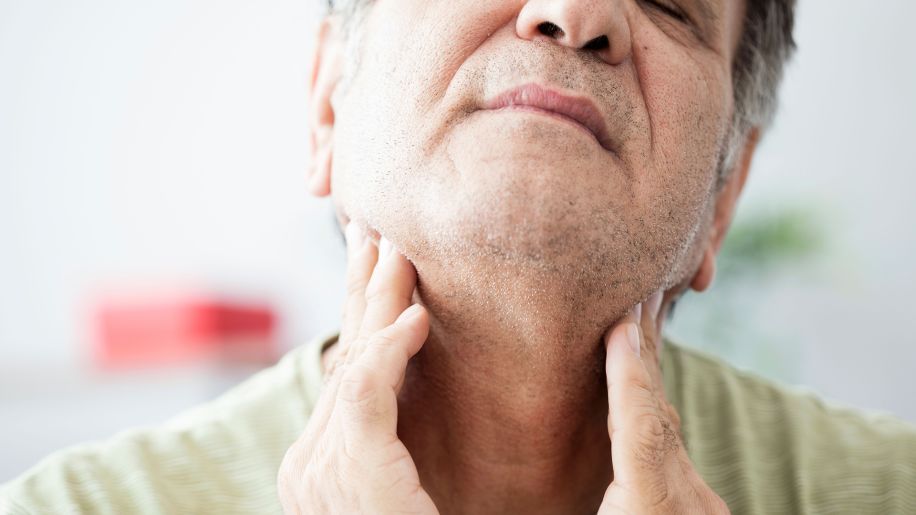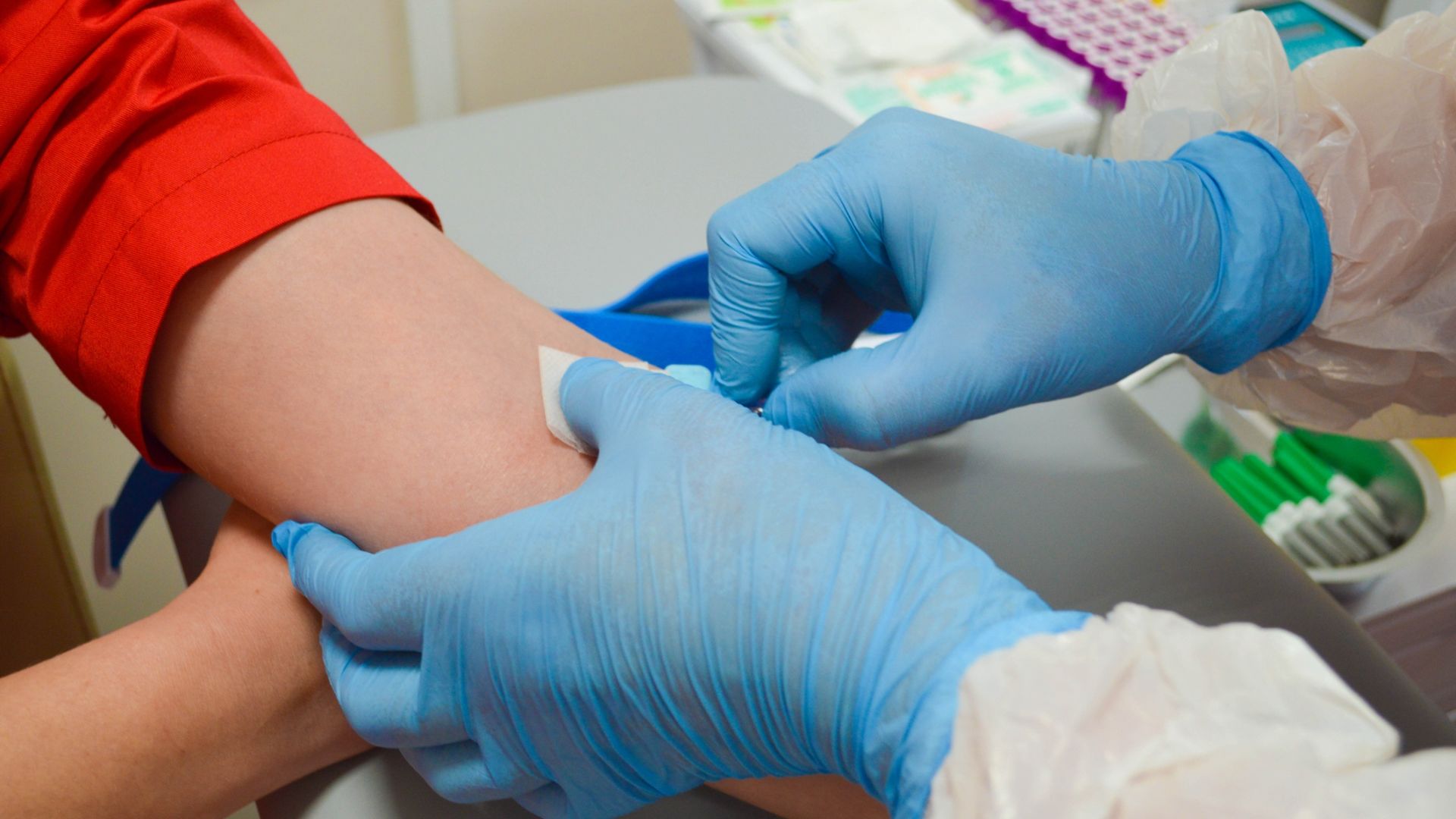6 questions to ask your doctor about HAE attacks
Preventing HAE attacks, avoiding triggers, and when to seek emergency treatment.

Hereditary angioedema, also known as HAE, is a rare genetic disorder that causes recurring episodes of severe swelling. These attacks most commonly affect the hands, feet, face, genitals, the gastrointestinal tract, and the throat.
There is no cure for HAE, but there are treatments available that can help people with HAE manage the condition.
The following slides look at a few questions related to HAE attacks that you may want to discuss with your healthcare provider, including preventive therapies, how attacks are treated, what can trigger an attack, and when to seek emergency treatment.

What can trigger an HAE attack?
Most HAE attacks are not associated with an identifiable trigger. But mental stress, physical exertion, minor traumas and injuries, dental work, surgery, and illnesses like the flu are all known to be potential triggers for an HAE attack.
Women who are menstruating, pregnant, and breastfeeding also report a greater frequency of HAE attacks. Additionally, medications that contain estrogen—such as oral contraceptives—are associated with more frequent HAE episodes and more severe HAE symptoms.
ACE inhibitors, a type of medication used to treat high blood pressure, are also associated with more frequent episodes and more severe symptoms.

Do I need a preventive therapy?
There are two basic types of treatments available for HAE—treatments that reverse attacks and treatments that prevent attacks from occurring. Preventive therapies may be prescribed for short periods of time, to prevent a potential attack brought on by dental work, surgery, or pregnancy.
Long-term use of preventive therapies has also become an important aspect of controlling HAE for many people. Some preventive therapies are taken by infusion or injection, and healthcare providers can train people with HAE to administer these treatments at home.
There is also one preventive medication that is taken as a pill.

Will I feel an attack coming on?
There is at least one published study of people with HAE where a large percentage of participants reported they could feel when an attack was in the near future.
Also, some people will experience symptoms during the 48 hours before an HAE episode. These symptoms may include fatigue, muscle aches, a tingling sensation in the area that will be affected, and a tingling red rash that does not itch.
People who have experienced HAE attacks that affect the intestinal tract have reported abdominal pain, nausea, and other gastrointestinal symptoms within that same 48-hour time period.
However, it’s important to understand that these symptoms are not reliable predictors of an impending HAE episode—they don’t always occur before an HAE episode, and they sometimes occur without being followed by an HAE episode.

How do I treat an attack?
People diagnosed with HAE will be prescribed a treatment to reverse an attack. These treatments are usually taken by an injection or infusion. This will be a different medication than a preventive therapy.
If you experience an attack, take your treatment as directed, and take it as soon as possible. Early treatment can reduce the severity of the attack and the duration of the attack.
Attacks that require emergency medical care are discussed on the next slide.

Will I need emergency care?
Some HAE episodes can be life threatening and require emergency care. Episodes that affect the airways can cause asphyxiation.
Severe gastrointestinal attacks may also require emergency medical treatment to address pain, cramping, dehydration, and other symptoms. Gastrointestinal symptoms may also require observation and evaluation by a healthcare provider, in case they are being caused by something other than HAE.
You and your healthcare provider should create a plan on what to do in a medical emergency. This may involve carrying forms that identify you as an HAE patient.
Because HAE is a rare condition, your healthcare provider may contact your local hospital or emergency services to make them aware of your diagnosis and ensure they are properly equipped to handle an emergency.

What do I do after an attack?
Follow your healthcare providers instructions for recovering from an attack. If you administered a treatment at home, refill your prescription as soon as possible, since HAE attacks are unpredictable and you will need to be prepared for another.
Many healthcare experts recommend keeping a journal describing symptoms and attacks, which can be helpful in identifying potential triggers, as well as evaluating how well your treatment plan is working. Record any details about the episode you can recall, including symptoms, severity, what you ate, and how the attack was treated.

Peter J. Delves. "Hereditary and Acquired Angioedema." Merck Manual. October, 2020.
U.S. Hereditary Angioedema Association. "What is Hereditary Angioedema (HAE)?."
U.S. Hereditary Angioedema Association. "Triggers: What Causes Hereditary Angioedema Attacks?"
Zsuzsanna Zotter, Dorottya Csuka, et al. "The influence of trigger factors on hereditary angioedema due to C1-inhibitor deficiency." Orphanet Journal of Rare Diseases, 2014. Vol. 9.
William R. Lumry. "Current and Emerging Therapies to Prevent Hereditary Angioedema Attacks." AJMC. August 21, 2018.
U.S. Hereditary Angioedema Association. "Approved HAE Treatments."
J.G. Gibbs and T.J. Craig. "Prodromal Symptoms Before Exacerbations of Hereditary Angioedema." The Journal of Allergy and Clinical Immunology, 2007. Vol. 119, No. 1.
Michael J. Prematta, Againdra K. Bewtra, et al. "Per-Attack Reporting of Prodromal Symptoms Concurrent with C1-Inhibitor Treatment of Hereditary Angioedema Attacks." Advances in Therapy, 2012. Vol. 29.
Callie Dagen and Timothy J Craig. "Treatment of Hereditary Angioedema: items that need to be addressed in practice parameter." Allergy, Asthma & Clinical Immunology, 2010. Vol. 6.
Hilary Longhurst. "Optimum Use of Acute Treatments for Hereditary Angioedema: Evidence-Based Expert Consensus." Frontiers in Medicine, 2018.
Roxana Siles. "Hereditary Angioedema." Cleveland Clinic. April 2017.
Angioedema News. "Hereditary Angioedema and Gastrointestinal Complications."
MedlinePlus. "Hereditary angioedema."
Napoleon Patel, Lisbet D. Suarez, Sakshi Kapur, and Leonard Bielory. "Hereditary Angioedema and Gastrointestinal Complications: An Extensive Review of the Literature." Case Reports in Immunology, 2015. Vol. 2015.
Discover HAE. "Be prepared for a hereditary angioedema (HAE) medical emergency."
American Academy of Allergy, Asthma & Immunology. "Understanding Hereditary Angioedema."
Featured Content

article

article

article

article

article
